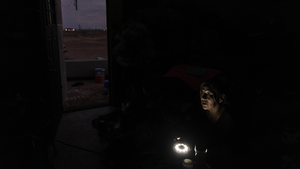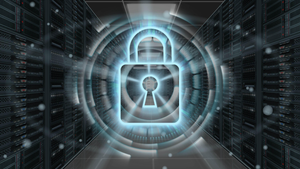
Insight and analysis on the data center space from industry thought leaders.
Server error: a message clients hosting at Reykjavík DC have yet to receive in 2020
November 5, 2020

Sponsored Content
Anyone still wondering about the importance of an excellently functioning data center (with contingency planning in order) and a service provider which can meet demands fast and without hassle? The weeks of COVID-19 gave data center service providers, operators a real stress-test where extra capacity was requested while not allowed to compromise any functionality. Many facilities experienced an extraordinary load on the existing equipment, leading to an increased need for technical service staff. Many encountered electricity- and air conditioning issues as facilities experienced an unpredictable usage increase of e.g remote collaboration and streaming services.
The demand has not only been brought about by remote work and the surge in Netflix use - HPC has been paramount in scientific research and trials of e.g. vaccine or medicine against COVID-19. Back home, few do not know what a VPN is - but there are those who are yet to learn that so many everyday activities are dependent on a functioning data center. When these connections fail, we are disconnected which is why it is of the greatest importance for businesses and service providers alike to know the country in which they're putting their infrastructure. Despite automation and AI, the world has seen several cases of catastrophic errors where such has been required in order to keep things running but was not possible due to legislation and restrictions.
When the COVID-19 crisis hit hardest in the UK, the government decided that only essential workers were allowed to attend work - data center staff being among them. However, an essential piece of the puzzle was omitted as the countless sub-contractors which data centers employ were not classified essential. Due to lack of insight, mission-critical operations were, in some locations, put at a halt as the contractors needed official permission to leave home. This even occurred at an NHS data center! It took some days for the problem to be identified - then yet some to solve it. Those who are vaguely familiar with such operations know that minutes of downtime can cost millions and endanger those who depend upon them.
Restrictions and long processes, nevertheless, are not the only ones to have caused trouble. The more liberal approach, with everyone allowed to work, has not proven to be less problematic in other European countries. Several cases have been reported in which one employee was diagnosed with COVID-19 and the whole facility had to be disinfected by a special team (meanwhile, not accessible). Needless to say, this is risky for mission-critical operations.
Independent of geographical location, facilities with lower levels of redundancy, cannot run unmanned for long. A Tier 2 data center has minimal such levels - in the case of any larger error, parts of the facility shut down. The choice of Tier level matters not only for security assurance but simple peace of mind about uptime and access to e.g. electricity and cooling under any circumstances.
As I have been observing several data center sectors around the globe coping with the pandemic and the restrictions it brings with it, it has been astonishing to discover that Iceland, not exempt from the COVID-crisis (hit hard), had a different scenario to offer. The clients consuming services from us have not experienced any disruption. The restrictions have indeed been affecting how people work, but due to well-drilled coping plans and contingency planning, companies adjusted in an agile and efficient manner, covering all necessary shifts without compromising safety.
Due to the high level of accountability in society (the smaller, the higher accountability levels, research shows), there was no need for a complete lockdown, but the limitations challenged the small population. This is when being the best-connected nation in the world comes in handy - the Icelandic fibre connection to households tops the list several years in a row.
The change in procedures even on a state level has been quickly executed and communicated, as the communication hierarchy is flat and bureaucracy levels kept at a minimum. Some researchers suggest that the reason for Iceland's incredibly fast flattening of the curve is also a result of the tracking app (one of the very first successfully and securely launched in Europe) being downloaded by over 38% of the population.
The conclusion of the observations of data center operations abroad and in Iceland? Where you place your IT matters – especially for resilience during a crisis - the uptime or downtime of your business. The COVID-19 crisis has, once again, put Iceland to the test and despite the criticism about the dangerous natural landscape and economic crashes, Iceland has - while fighting the same enemy as other countries - shown extraordinary performance and clients depending on Opin Kerfi and Reykjavík DC have yet to receive a server error message.
About the Author
You May Also Like

.jpg?width=300&auto=webp&quality=80&disable=upscale)





